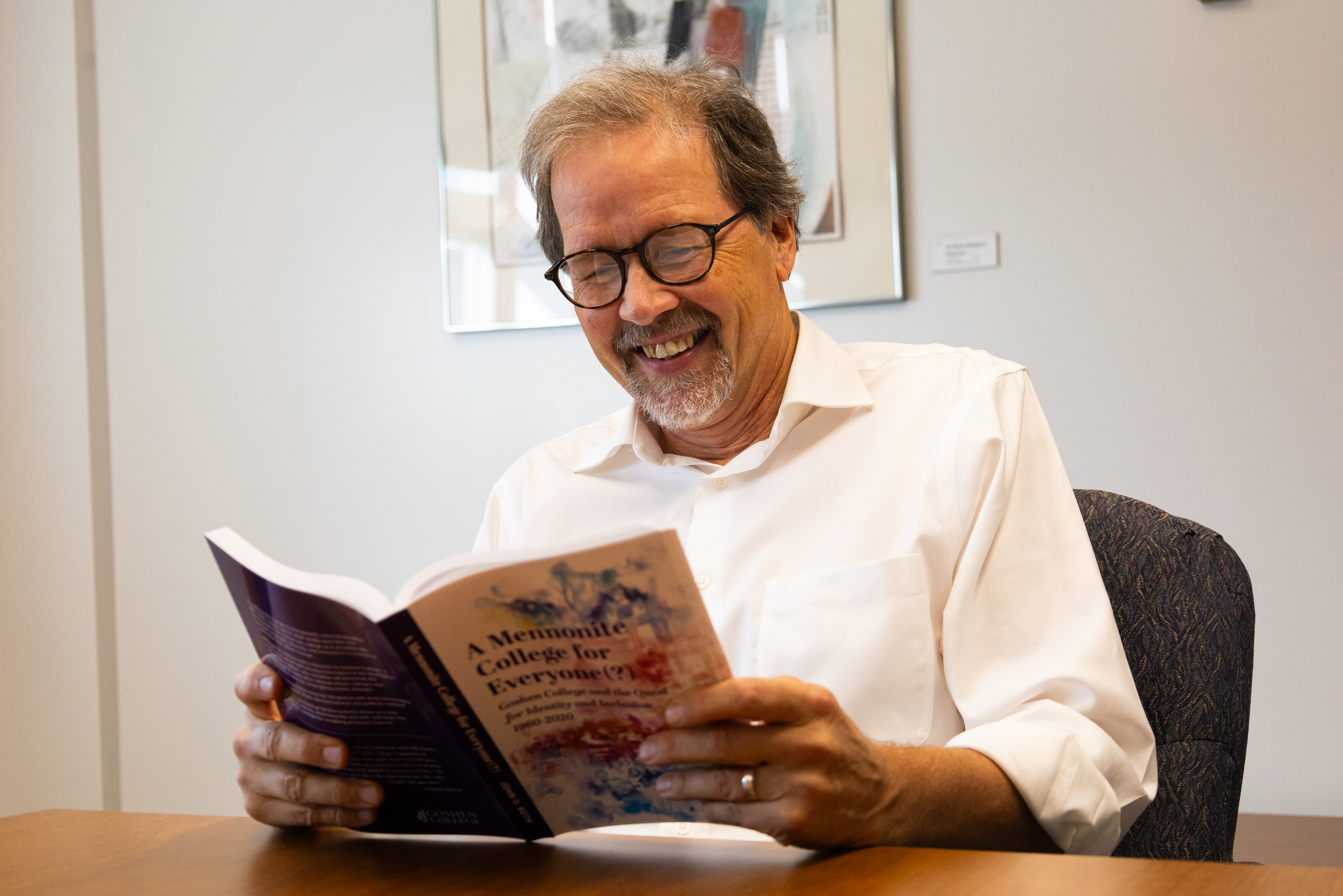Over the past 20 years, the cultural, demographic and religious identity of Goshen College has substantially shifted. The history of the college’s identity regarding inclusion of LGBTQ+ students and employees as well as integration of BIPOC individuals is captured in a new book from John Roth, professor emeritus of history “A Mennonite College for Everyone(?): Goshen College and the Quest for Identity and Inclusion, 1960-2020.”
Lawrence Giden, specialized community engagement coordinator of the center for community engagement and former adviser for the Black Student Union, was particularly drawn to Roth’s chapter regarding Mennonites and race relations.Giden noted that in the past “Mennonites in the area saw that there was a lack of racial diversity, yet [they did not bring] awareness to it because it was not a theological concern … meaning it wasn’t a moral issue.” Giden said that now, he is seeing progress in the Mennonite-based institution reaching out to Black and Hispanic communities.
Though there have been many changes, Giden also acknowledged that there is a long way to go. “I feel like Goshen College is on the course of getting there,” Giden said. “You will have setbacks … there is always a sense of [GC] getting there, but it takes somebody out of their comfort zone. … In order to include others, you have to come out of your comfort zone.”
Giden remarked on GC’s continuing efforts to include a diverse array of cultures and strive for minority voices to be heard: “Our campus pastor is incorporating different cultures into convocation,” he said. “I’m seeing we have a DEI director” that is a Black woman. Giden continued that “up until now, The Record had minority voices: Jakyra Green and Mariela [Esparza] — women who are minorities but their voices were in The Record. These different channels of communication are letting the world know that Goshen is changing into the identity that it should be, recognizing these minority groups.”
Philipp Gollner, professor of history, said, “John’s project makes clear that our identity has always been malleable, and never clear-cut. At the same time, it highlights questions, even tensions, that are still with us. Most of all though, what will stay with me as a historian and a person from this project, was John’s willingness to see where he may have gotten it wrong, and reach out as a writer of a chapter draft, but also as someone who had a role in Goshen College’s story for decades now.”
In her blog, President Rebecca Stoltzfus wrote, “The scope of [Roth’s] work is unusually broad, even for a history that deals with diversity. He opens with the founding of the college in 1894 and then turns his attention to the years after 1960, focusing not only on the topic of race, but also religious norms, gender, sexuality, nationality, ethnicity and politics.”
“A Mennonite College for Everyone(?)” may be purchased at the GC box office (half-price for students and faculty), or at Fables Books in downtown Goshen. All proceeds go toward DEI initiatives on campus. John Roth will be available for a meet and greet at Fables Books on Oct. 6 from 6 to 8 p.m. and at Newcomer Center Room 19 on Oct. 7 from 1 to 2 p.m. The latter event includes a talk by the author, a book signing and a Q&A session.



